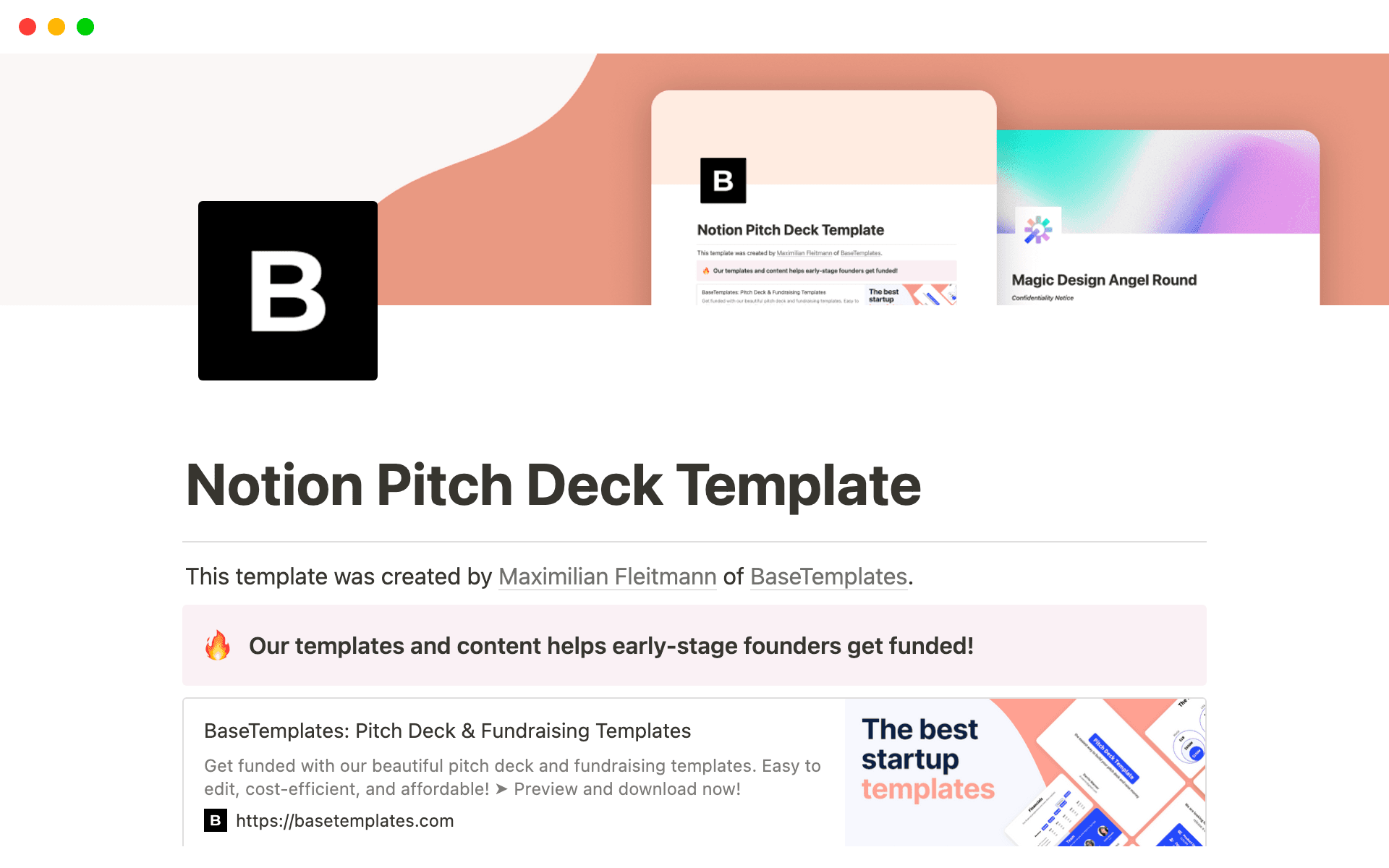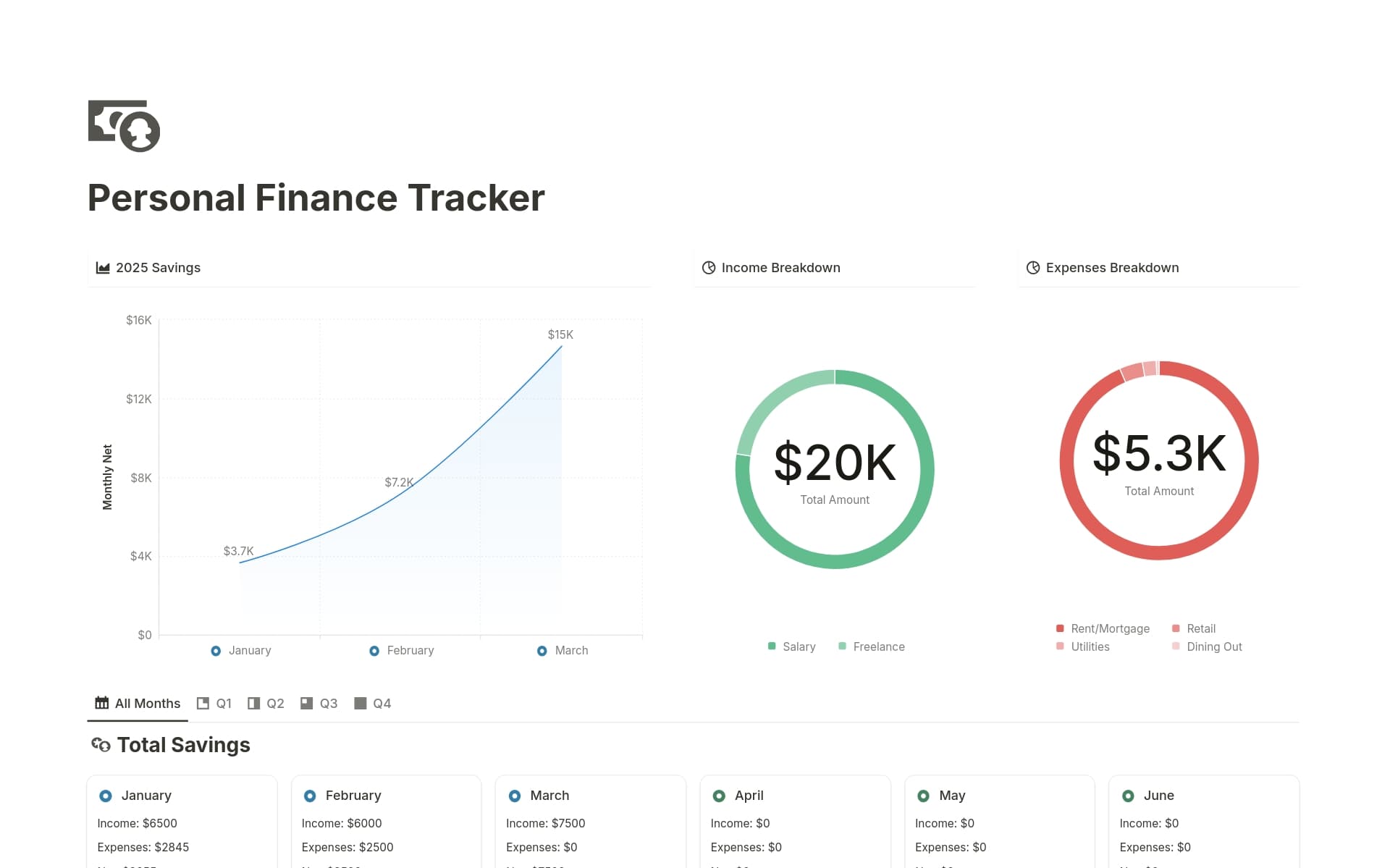Founders, particularly those in data-driven ventures, stand at the convergence of raw information and actionable insight. Having a structured approach to organize this data, articulate business strategies, and communicate with investors is indispensable. Using Founders Notion templates, like the "Pitch Deck" or "The Ultimate Data Room," can streamline these processes, ensuring that critical information is presented in a clear, compelling, and accessible manner.
Before embarking on the creation of your own Founders template, explore these curated options. They are designed to simplify complex tasks, from fundraising to investor communication, making your journey as a data scientist in the entrepreneurial world more manageable.
What Should Founders Templates Include?
Choosing the right Founders Template in Notion can streamline your workflow and enhance your data science projects. Here are key components to look for:
Project Management Tools: Essential for tracking progress, deadlines, and tasks. A good template should include integrated task lists and timeline views.
Collaborative Features: Look for templates that facilitate teamwork, such as shared databases and real-time editing capabilities, to enhance communication and efficiency.
Data Analysis Frameworks: Since data is at the heart of what you do, ensure the template has structured sections for data exploration, visualization, and analysis.
Resource Libraries: A valuable component is a well-organized area for storing files, links, research papers, and other resources that support your data science projects.
Ultimately, the best template is one that fits seamlessly into your operational flow, making it easier to manage projects and collaborate effectively.
What Should Founders Templates Avoid?
Choosing the right Founders template is crucial for data scientists aiming to streamline their startup operations. However, certain features can complicate rather than simplify your workflow.
Overly Complex Features: Avoid templates with intricate features that are not directly beneficial for data analysis or management. These can distract from core tasks.
Non-Customizable Elements: Templates that do not allow easy modifications can hinder adapting the template to specific needs of your data science projects.
Irrelevant Content Sections: Steer clear of templates filled with sections that don't align with data science activities, as they clutter the workspace and reduce efficiency.
Choosing a template that is streamlined, customizable, and relevant will ensure that it enhances productivity rather than detracting from it.













